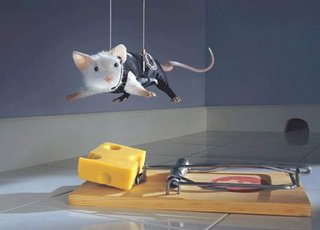PLAGIARISM: MISSION IMPOSSIBLE

Hi Guys
Gwen has sent through the marks for your Biodiversity assignments. Since plagiarism and poor comprehension contributed to a class average of only 32% and this is after removing the two worst assignments, I needed to give you some means to correct this situation. In playing the cat and mouse game most of you (but not all of you) ended up getting caught for plagiarism. Since I am not convinced that some people have fully understood what plagiarism is and the seriousness of the matter, I will give you one more opportunity to perform the mission impossible of writing in your own words.
- Each one of you that has submitted an answer found to be plagiarised will get one of your answers returned to you by either Gwen or Nick with a mark-up showing where the plagiarism occurred- hopefully by Thursday afternoon.
- We will give you ONE WEEK to sort out your answers and attempt to remove any plagiarism (Hand-In June 9th). You can also edit them and add more references.
- You will put all of your assignments into a single Word document with headings (capitalized) identifying the question, with your answer under each. You must put all of your assignments in the correct sequence A to L and put the letter in the heading e.g. B: DESCRIBE THE DIVERSITY OF SEGMENTED MARINE INVERTEBRATES THAT HAVE EVOLVED or C: DESCRIBE THE DIVERSITY OF FLYING INSECT LIFE THAT HAS EVOLVED.
- These combined reports (Portfolios of Evidence) are to be emailed to me at knight.rich@gmail.com and I will get these Word documents electronically scanned for plagiarism using Turnitin and get the reports back to you.
- If you have removed virtually all the plagiarism, I will re-examine your material and it will get marked to a maximum of 50% (a passing score).
- Oprah Winfrey routinely scans the authenticity of material for her shows [1]. If Oprah has a zero tolerance on plagiarisim, why can't I?
- Please review all of your references to ensure that you have sufficient of these, each answer should have at least three references using the CSE/CBE style (see my referencing below).
- Please attempt to source non-Wikipedia material and that you have used more than one source for reference material.
- Avoid using dubious sites for your references, e.g. http://www.cheathouse.com/ citing material from this type of resource will be ignored.
- Grades provided by sites such mentioned above are not reflective of our marking policies (see below).
- I will personally undertake the final scanning and will review your marks.
- I will not have time for a complete remark.
- Closing date will be Friday 9th June and no extensions will be given.
>90%: Excellent work with no glaring errors, well written, original and with genuine insight, well referenced and few spelling, grammar and typo errors.
80~90%: Excellent work with no glaring errors, reasonably well written or only reasonably well reference and few spelling, grammar and typo errors.
70~80%: Good to Excellent work with no glaring errors, but potentially let down in either the referencing or writing area (spelling, grammar or typo errors)
60~70%: Good Work, but not Excellent, some attention is needed in either the referencing or writing department. Reasonable work that is well written and referenced
50~60%: Reasonable work requiring attention in either the referencing or writing department
40~50%: Poor work, but is reasonable in referencing and writing department.
30~40%: Poor work requiring attention in either the referencing or writing department
<30%: Poor work in all departments
0%: Plagiarised (no exceptions!)
It should be noted that excellent means it is close to, or meets our specified outcomes, it does not mean that it is perfect or without error. Consequently marks as high as 95% or more are attainable. When I review material, I often ask myself, whether I could do better and if so how much better? If you do an assignment that is as good as I could do and there is the necessary attention to detail you will receive 100%. In our marking, if you have not answered the question fully, it is poorly reference and the writing not particularly good you will get a mark lower than 30%. In other words I use the full percentage range and you will notice that we do not condone poor work with a mark just less than failing. At the end of a module we need to establish that you have compliance with our stated objectives.
It really comes down to attention to detail, even if your work is not hugely original and with a great amount of insight you can get relatively high marks 75%, by ensuring that you have thoroughly answered question(s) and it is well referenced and written. I hope this helps you in the final preparation of the Biodiversity hand-in work. Finally please check that your links work before submitting.
Reference
[1] Philip Recchia. Oprah 'Truth' Search: Web Check on Authors [Internet]. New York Post: Online Edition; 2006 May 14, [cited 2006 May 30]. Available from: http://www.nypost.com/news/nationalnews/66026.htm
Image Source
Ryan Mack. Mouse Mission Impossible [Internet]. Bluegreen BLOG; 2005 March 14, 18:39 [cited 2006 May 30]. Available from: http://bluegreenblog.com/archives/2005/03/14/mouse-mission-impossible/
Dr Richard Knight
Co-ordinator: National Information Society Learnerships - Ecological Informatics
Department of Biodiversity and Conservation Biology
University of the Western Cape
Private Bag X17
Bellville 7535
Phone 27 + 21 + 959 3940
Fax 27 + 21 + 959 1237
Email Rknight@uwc.ac.za
Web http://nisl.uwc.ac.za
